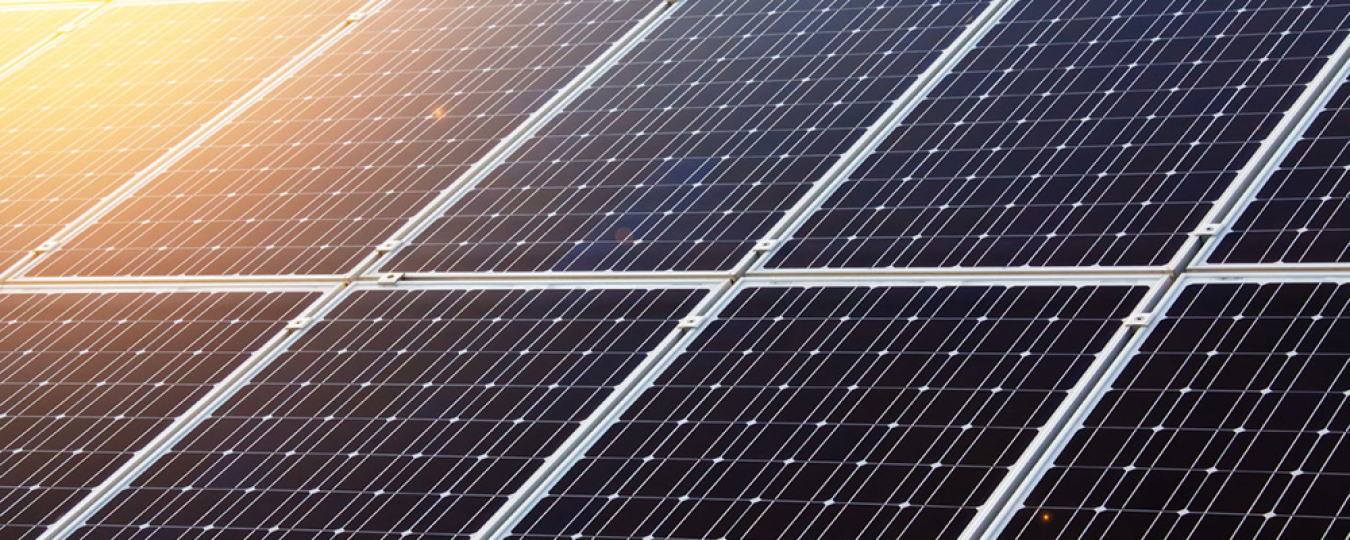Optimizing Solar Efficiency: Unleashing Sustainable Power

Optimizing Solar Efficiency: Unleashing Sustainable Power
Harnessing solar energy is at the forefront of sustainable power solutions, and optimizing solar efficiency is key to unlocking its full potential. Explore the benefits and innovations that contribute to making solar power an increasingly efficient and sustainable energy source.
1. The Significance of Solar Efficiency
Solar efficiency refers to the effectiveness with which solar panels convert sunlight into electricity. It plays a crucial role in determining the overall performance and viability of solar power systems. As technology advances, the quest for higher solar efficiency becomes paramount in ensuring the optimal utilization of this renewable energy source.
2. Advances in Photovoltaic Technology
Photovoltaic (PV) technology is central to solar efficiency. Ongoing research and development in this field have led to significant breakthroughs. Innovations like multi-junction solar cells and tandem solar cells enhance the efficiency of converting sunlight into electricity, pushing the boundaries of what solar power can achieve.
3. Importance of Tracking Systems for Solar Efficiency
Solar tracking systems play a pivotal role in maximizing solar efficiency. These systems orient solar panels to directly face the sun as it moves across the sky. By tracking the sun’s path, solar panels can capture sunlight more effectively throughout the day, leading to increased energy production and improved overall efficiency.
4. Thin-Film Solar Technology: Lightweight and Efficient
Thin-film solar technology represents another stride towards higher efficiency. These lightweight and flexible solar panels are made from thin layers of semiconductor materials. While offering versatility in application, thin-film technology continues to evolve, aiming to enhance efficiency and reduce the overall environmental impact of solar panels.
5. Energy Storage Solutions for Solar Efficiency Benefit
Addressing the intermittent nature of sunlight requires effective energy storage solutions. Batteries and other energy storage technologies store excess energy generated during sunny periods for use during cloudy days or at night. Integration of energy storage enhances the reliability and efficiency of solar power systems, making them more adaptable to varying energy demands.
6. The Role of Artificial Intelligence in Solar Efficiency
Artificial Intelligence (AI) is making significant strides in optimizing solar efficiency. AI algorithms can analyze weather patterns, historical data, and real-time conditions to predict and adjust solar panel settings for maximum efficiency. This dynamic optimization ensures that solar panels operate at peak performance under different environmental circumstances.
7. Solar Efficiency Benefit: A Catalyst for Adoption
The pursuit of higher solar efficiency is not just a technological endeavor; it is a catalyst for the widespread adoption of solar power. As efficiency increases, the cost of solar energy decreases, making it a more attractive and competitive option compared to traditional energy sources. Solar Efficiency Benefit provides valuable insights into maximizing the efficiency of solar power at [solarhelp.info].
8. Government Incentives Encouraging Solar Efficiency
Governments globally are incentivizing the adoption of solar energy by offering benefits and subsidies. These incentives often encourage the installation of high-efficiency solar panels and tracking systems. By leveraging these initiatives, individuals and businesses can make solar power more economically viable while contributing to a sustainable future.
9. Solar Efficiency and Environmental Impact
Improving solar efficiency goes hand in hand with reducing the environmental impact of solar power systems. Higher efficiency means fewer panels are needed to generate the same amount of electricity, reducing the use of raw materials and minimizing the ecological footprint associated with manufacturing and disposal.
10. A Sustainable Future: Solar Efficiency Unleashed
In conclusion, optimizing solar efficiency is a crucial step towards a sustainable future powered by renewable energy. Technological advancements, coupled with supportive government policies and widespread adoption, contribute to making solar power a reliable and efficient energy source. Explore the potential of Solar Efficiency Benefit at [solarhelp.info] and be part of the journey towards a cleaner and more sustainable energy landscape.
Energy Independence Advantage: Unleashing Sustainable Power

Energy Independence Advantage: Unleashing Sustainable Power
In a world that is increasingly focused on sustainable practices, achieving energy independence has become a key goal for communities and nations alike. This pursuit is not just an environmental choice but also a strategic decision with far-reaching benefits. Let’s explore the advantages of embracing energy independence and the positive impact it can have on our lives.
Unlocking Environmental Benefits
One of the primary advantages of pursuing energy independence is the positive impact on the environment. By shifting towards renewable energy sources like solar, wind, and hydropower, we can significantly reduce our carbon footprint. Solar panels, for instance, generate electricity without emitting harmful greenhouse gases, contributing to cleaner air and a healthier planet.
Securing a Sustainable Future
Energy independence is a crucial step towards ensuring a sustainable future. Traditional energy sources, such as fossil fuels, are finite and contribute to environmental degradation. By investing in renewable energy, we not only reduce our dependence on finite resources but also create a more stable and sustainable energy infrastructure for future generations.
Economic Empowerment through Solar Solutions
Embracing solar energy is a key aspect of achieving energy independence. The solar industry has seen tremendous growth in recent years, leading to job creation and economic stimulation. As more individuals and businesses adopt solar solutions, the demand for solar-related jobs continues to rise, providing economic opportunities for communities around the world.
Resilience in Energy Supply
Energy independence enhances a nation’s resilience in the face of external shocks. By diversifying energy sources and incorporating decentralized systems, countries can ensure a more robust energy infrastructure. This reduces vulnerability to geopolitical tensions, price fluctuations in global energy markets, and natural disasters that can disrupt traditional energy supply chains.
Community Empowerment and Localized Energy
Localized energy production is a key component of energy independence. Communities can harness renewable resources available in their vicinity, promoting decentralized energy generation. This not only reduces transmission losses but also empowers local communities by giving them control over their energy production and consumption.
The Role of Technology in Energy Independence
Advancements in technology play a crucial role in achieving energy independence. Smart grids, energy storage solutions, and efficient renewable technologies contribute to a more reliable and resilient energy infrastructure. Continuous innovation in the field of clean energy technology accelerates the transition towards a sustainable and independent energy future.
Addressing Energy Poverty with Solar Solutions
Energy independence is not just a concern for developed nations; it also holds immense potential in addressing energy poverty. Solar solutions, in particular, can be deployed in remote and underserved areas, providing access to electricity and improving living standards. This approach not only addresses social inequalities but also contributes to the overall well-being of communities.
The Global Impact of Energy Independence
As nations strive for energy independence on an individual level, the collective global impact is profound. Collaboration and the sharing of best practices in renewable energy technologies can accelerate the transition towards a sustainable energy future for the entire planet. The global community’s commitment to energy independence is crucial for mitigating climate change and creating a cleaner, healthier world.
Empowering Individuals: Energy Independence Benefit
To realize the benefits of energy independence, individuals must be informed and empowered to make sustainable choices. The Energy Independence Benefit initiative aims to educate and assist individuals in adopting clean energy solutions. Visit Energy Independence Benefit for resources, guidance, and support on your journey towards a more sustainable and independent energy future.
Conclusion
Energy independence is not just a choice; it’s a necessity for a resilient, sustainable, and equitable future. By embracing renewable energy sources, promoting local energy production, and leveraging technological advancements, we can collectively unlock the full potential of an energy-independent world. The journey towards energy independence is a shared responsibility that requires collaboration, innovation, and a commitment to leaving a positive legacy for generations to come.
